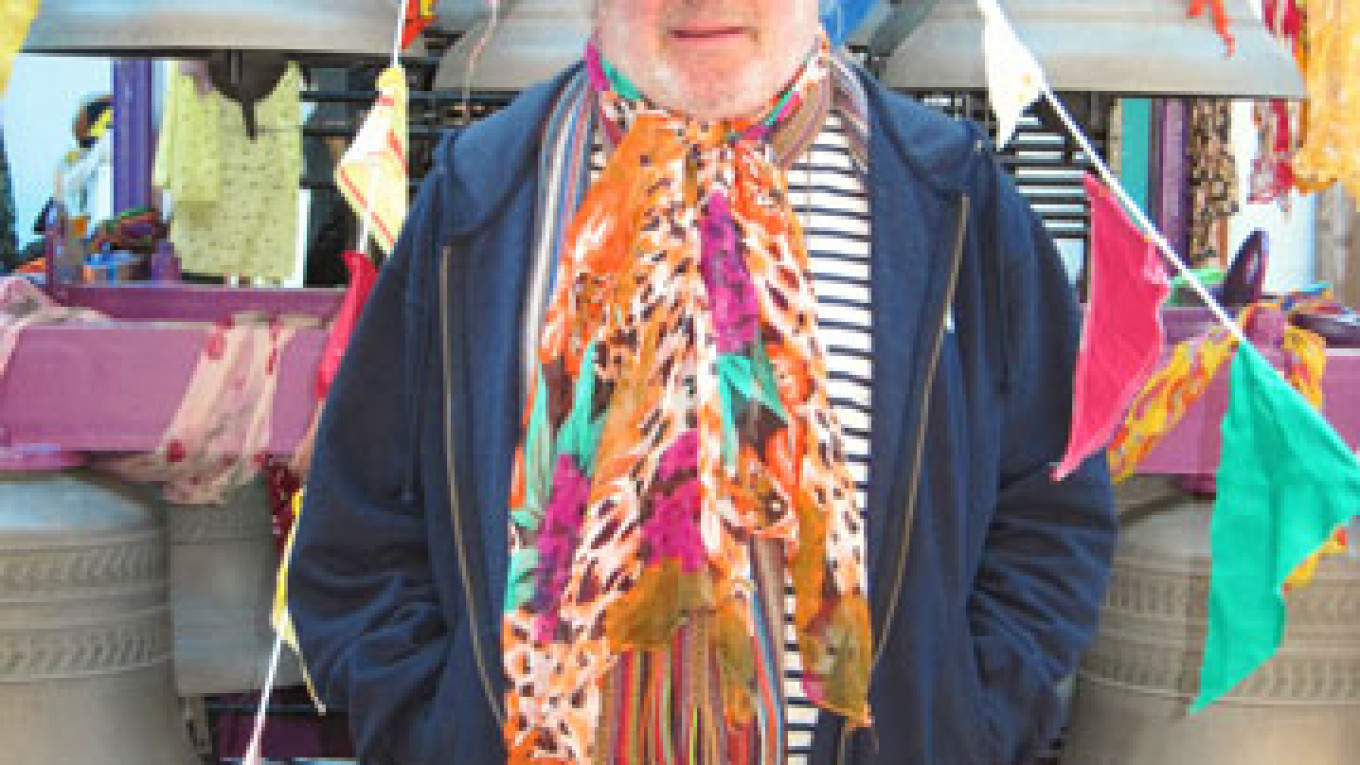The composer Charlemagne Palestine, known for his repetitive drone pieces of extreme length and physicality performed on church organs, bells and piano, made his name as part of New York's downtown music scene in the late '60s and '70s, which distinguished itself from uptown's more conventional classical music. It included composers like La Monte Young, Tony Conrad, John Cale, Steve Reich and Philip Glass, a group that would later be known as the minimalists — a term that Palestine abhors.
"Minimal is such a cheap term. I would prefer to consider myself as someone with lots of imagination and appetite. So I don't feel that I am minimal, though I like to use just a few things and do them in an amazing way … I use several elements that go on for a long time but then within them, I try to do the most I can," Palestine said in a Skype interview with The Moscow Times ahead of his concert at Muzeon Park's Fields festival on Sunday.
"New York City in the late '60s and early '70s was like Paris in 1910. We were an amazing school of bohemians who had the amazing possibility and energy to do all these crazy things. It was just the right time and the right place," he recalled, "That wouldn't last forever, but I was there at that golden moment."
Though often grouped together with downtown's other composers and artists, Palestine was always and remains an outsider. He was born in Brooklyn in 1947 to Jewish migrants from Minsk and Odessa who moved to the U.S. before the October Revolution. "I came from the boonies of Brooklyn," he began. "But I won this scholarship [to The High School of Music and Art] and immediately moved to Manhattan. All the other students in my class, their mothers and fathers were famous composers and from 'intellectual' circles."
He had the fortune to be surrounded by likeminded eccentrics, living above Moondog — the influential blind American composer known as "The Viking of Sixth Avenue" — and playing the bells of St. Thomas church down the road from MoMA, which Tony Conrad, living on Times Square, would listen to all the time.
Palestine recalls that one day, Conrad went up the tower and introduced himself, and subsequently introduced him to New York's avant-garde scene, though he remained set apart from his peers: "I'm not a musician in the most classic sense of the term, like I don't use scores for example … I was more into temples and synagogues and churches, organs, bells and acoustics that are alive and not dry," he explained.
The rhythm and tonality of Palestine's works takes more from Eastern musics, particularly the Indonesian gamelan, which he cited as a major influence. As such, the ritualistic nature of his music is hard to avoid, though he clarifies, "I wasn't into meditation, but in a way my music is all about meditation because it's long; it's continuous … I didn't like notation and I liked long continuums."
"Strumming Music," released in 1974, is perhaps his best-known work and a classic of the genre, but Palestine quickly fell off the radar for more than two decades focusing on other forms of art while his peers rose to fame with the commercialization of minimal music.
"I started to do my animals, my stuffed animal sculptures, they became my art. I diversified in every way I could to continue to work, and also it's more in my concept to be a total artist than to be only a musician or a video artist or a installation artist," Palestine said.
Nowadays, he attracts a whole new audience discovering his music for the first time. "I don't know how that turned out. I only had enemies or adversaries in the old generation. They all respected me but they preferred it if I was far away. But the new generation, they embrace me and I embrace them, and it works really well, because we have the same point of view."
Finnish composer Mika Vainio and Belgian percussionist Eric Thielemans will perform with Palestine, who will play the electric piano, sample his old electronic compositions that date back to the mid-'60s and sing through a vocal synthesizer. "All that goes into Mika's strange electronic transformational frankenstein system while Eric does his live percussion with instruments which he finds from all around," said Palestine, who likens their music to the Marseillaise soup bouillabaisse.
"We create an enormously smelly, dissonant and diverse sonority together and that's what we will do at Muzeon on Sunday," he said.
The festival, which takes place this weekend, also has among its highlights German composer Hauschka, known for his compositions on prepared piano, Icelandic cellist Hildur Gudnadottir and Norwegian experimental guitarist Stian Westerhus.
Charlemagne Palestine performs on July 13. Fields festival takes place at Muzeon Park, Krymsky Val 2 (Metro Park Kultury), July 12 to 13. Free. www.muzeon.ru.
A Message from The Moscow Times:
Dear readers,
We are facing unprecedented challenges. Russia's Prosecutor General's Office has designated The Moscow Times as an "undesirable" organization, criminalizing our work and putting our staff at risk of prosecution. This follows our earlier unjust labeling as a "foreign agent."
These actions are direct attempts to silence independent journalism in Russia. The authorities claim our work "discredits the decisions of the Russian leadership." We see things differently: we strive to provide accurate, unbiased reporting on Russia.
We, the journalists of The Moscow Times, refuse to be silenced. But to continue our work, we need your help.
Your support, no matter how small, makes a world of difference. If you can, please support us monthly starting from just $2. It's quick to set up, and every contribution makes a significant impact.
By supporting The Moscow Times, you're defending open, independent journalism in the face of repression. Thank you for standing with us.
Remind me later.






